Fairgreen International School Dubai is an IB World School established in 2018 by Esol Education, an organization with a heritage of over 40 years of educational experience. With its home in The Sustainable City, the first operational Net Zero Energy city in Dubai, Fairgreen’s future-focused vision is to become “an exemplary learning community that promotes purposeful and innovative solutions for a sustainable world.” Claiming multiple awards for technology and innovation within its first four years, Fairgreen is well on its way to inspiring future generations to make a positive impact on the world as ambassadors of sustainable development.
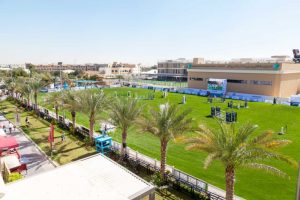 As an IB school, Fairgreen is fully immersed in an inquiry-based curriculum, developing students’ natural curiosity and desire to understand the world around them. With access to one of the city’s bio-domes, a rooftop garden plot, mobile food technology tower gardens, and a community bee garden, students explore the ecology of the natural world, part of the School’s Urban Farming Programme. The School’s ethos and vision combined with its infrastructure and location within the community pave the way for a successful STEM-based curriculum.
As an IB school, Fairgreen is fully immersed in an inquiry-based curriculum, developing students’ natural curiosity and desire to understand the world around them. With access to one of the city’s bio-domes, a rooftop garden plot, mobile food technology tower gardens, and a community bee garden, students explore the ecology of the natural world, part of the School’s Urban Farming Programme. The School’s ethos and vision combined with its infrastructure and location within the community pave the way for a successful STEM-based curriculum.
STEM within the Primary Years Programme (PYP)
Throughout the PYP, students are encouraged to question, investigate and discover through inquiry-based units that take a STEM based cross-curricular approach. Students navigate their learning experiences by making connections between different aspects of the world around them while teachers act as facilitators, adapting to meet the needs and interests of their particular group of students. At Fairgreen, students from Grades 1 to 5 have weekly STEM lessons. As PYP STEM teacher, Aimee Thomas ensures that the content is either closely aligned to the topics being covered in students’ homeroom classes or focuses on a particular learning skill. These deeper level connections between STEM and other subjects are ensured through regular collaborative planning meetings between all specialists and homeroom teachers. Some may argue that discreet STEM lessons goes against the ethos of the subject, however, Aimee believes that having STEM as a weekly lesson, not only highlights the importance of the field, but also enables students to apply their skills across a much wider context, multiplying the amount of joyous lightbulb moments when connections are made to science or maths lessons.
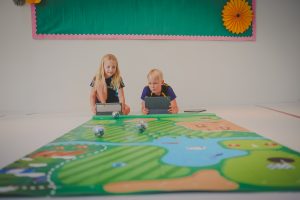
The weekly STEM lessons at Fairgreen follow the structure of the Design Thinking Model. Each student experiences the process of first asking about a problem and empathizing with a user, then imagining different solutions and investigating possibilities that already exist, before planning and creating the students’ own solution, followed by a reflection and evaluation of possible improvements after testing. This cycle flows perfectly into the IB MYP Design Cycle and ensures a smooth transition between the Primary and Secondary School STEM and Design work.
Key STEM activities within the Primary Years Programme
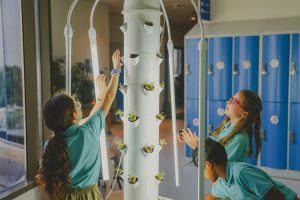 The STEM program is constantly developing and is reflective of student interests, curriculum needs, and the desire to find sustainable solutions to current global challenges. Recently, Grade 1 students honed in on their engineering skills to demonstrate learning about people who help us in our community. Students used levers, sliders and pivots to make moving picture books which they shared with Pre-K students. Meanwhile, Grade 2 students were tasked with designing a hydroponics system as part of Fairgreen’s Urban Farming initiative. The initial prototypes were made with recycled materials in the classroom before the winning design was built to sustainably grow herbs and plants. Grade 3 students wanted to develop the ecosystem of our local area by designing and building bug hotels as well as building extendable tools and mechanisms to help us maintain social distance during COVID times. Real life global issues have been tackled in Grade 4, such as transport of crops from fertile land high on the mountainside of Nepal down to the markets at the bottom. Students had to consider pulley systems and methods of safely and gently transporting crops ready for sale. Meanwhile, Grade 5 students were busy putting their coding skills to use when programming Spheros to mimic the attributes and adaptations of particular animals in their natural habitat as well as investigating renewable energy sources through the use of Lego robotic windmills.
The STEM program is constantly developing and is reflective of student interests, curriculum needs, and the desire to find sustainable solutions to current global challenges. Recently, Grade 1 students honed in on their engineering skills to demonstrate learning about people who help us in our community. Students used levers, sliders and pivots to make moving picture books which they shared with Pre-K students. Meanwhile, Grade 2 students were tasked with designing a hydroponics system as part of Fairgreen’s Urban Farming initiative. The initial prototypes were made with recycled materials in the classroom before the winning design was built to sustainably grow herbs and plants. Grade 3 students wanted to develop the ecosystem of our local area by designing and building bug hotels as well as building extendable tools and mechanisms to help us maintain social distance during COVID times. Real life global issues have been tackled in Grade 4, such as transport of crops from fertile land high on the mountainside of Nepal down to the markets at the bottom. Students had to consider pulley systems and methods of safely and gently transporting crops ready for sale. Meanwhile, Grade 5 students were busy putting their coding skills to use when programming Spheros to mimic the attributes and adaptations of particular animals in their natural habitat as well as investigating renewable energy sources through the use of Lego robotic windmills.
PYP students have also been introduced to aspects of economics within the design process. Students are asked to budget for the resources they plan to use in their solutions and then “buy” them at the classroom STEM store (using STEM tokens). Students are responsible for a range of job roles from project manager, structural engineer, accountant, to sustainability officer, a concept which was adapted from The Institution of Engineering and Technology Faraday Challenges. The accountant in the group has to take charge of the finances and ensure that the group does not spend the whole budget before the project is complete. This collaborative working style makes students more invested in the success of their product and ensures that they each play a leading role at one or more stages of the process. Aimee has found this to lead to rapid progress throughout her units.
STEM within the Middle Years Programme (MYP)

As students progress to the MYP, STEM based activities are integrated seamlessly into the curricula of Science, Mathematics and Design.
At Fairgreen, Design is a mandatory subject for students in Grades 6 to 8 after which it becomes an elective. Design units are developed around the MYP Design Cycle (see image above) and involve the processes of inquiry and analyses into real world problems, developing ideas for how the problems could be solved, creating possible solutions to these problems, and evaluating the success of the created solutions. The United Nations’ Sustainable Development Goals are at the heart of our units.
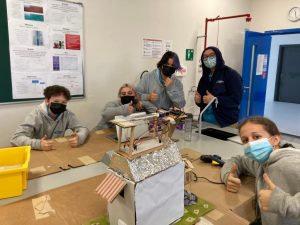
Throughout their design units, students are exposed to a variety of problems that can be solved with different design skills. Units are created to expose students to different kinds of product design and digital design, developing a wide range of skills from 3D modelling and printing, robotics, sewing, digital drawing, to game design. Students have inquired into current industry based sustainable practices within architectural design and used a building information modelling software to design floor plans and rendered 3D models of a sustainable building that meets a selected need in their community e.g. affordable housing for construction workers in The Sustainable City. Students have been tasked with designing a game to help young children in the Fairgreen community with Motor Development Delay improve their fine or gross motor skills. Students have been challenged to design for social justice, choosing a social issue that they want to highlight to their community and creating an innovative sustainable fashion design out of only junk materials. They will enter their designs into this year’s Junk Kouture contest, a global fashion competition for secondary school students, bringing their design and message to a global audience.
Throughout the Design Cycle, students are encouraged to think about Universal Design, the practice of making a design accessible to all those who wish to use it. In one unit, where students are required to design a game controller for a video game they have designed, students must aim to eliminate the barriers that a person may face while playing their game, maximising usability by individuals with a wide variety of characteristics and disabilities.
When possible, members of our community are invited to speak with the students during their initial research phase and evaluation phase of the process. We have welcomed architects, engineers, physiotherapists, interior designers, fashion designers, film directors, and more into our lessons. Through this, we aim to connect our units to the real world but also to inspire, guide and lead our students to see where their creativity, talents and passions will take them.
Fairgreen’s maths and science teachers also create hands-on projects for their students such as solar boat races, Murder Mystery DNA testing, and creating models of large scale items such as the Dubai Frame to a smaller scale. One stand-out scientific architecture project involved Grade 8 students building and testing models of houses that apply traditional Middle Eastern cooling techniques (shading, insulation, air circulation, evaporative cooling, etc.). Through the incorporation of Arduino Uno boards, motors and sensors, students then created solar panels for their houses that were coded to orient themselves to maximise solar input.
Major achievements for the Fairgreen International School
Technology is in the DNA of Fairgreen International School. The School build makes minimal environmental impact, utilising solar power for all its energy needs, recycling all its water for agricultural use, and implementing waste separation. It is one of the first fully sustainable schools and campuses in the UAE. In only its fifth year, Fairgreen has already claimed two accolades at the SchoolsCompared.com Top Schools Awards:
- 2019 Award for Outstanding Innovation in the Use of Technology for Education in the UAE (alongside Jumeirah English Speaking School [JESS] Arabian Ranches)
- 2021-22 Most Innovative School in the UAE (alongside The Arbor School Dubai)
Fairgreen continually connects its students with world-class leaders and champions of various industries. It proudly partners with Stephen Ritz, world-renowned educator and founder of The Green Bronx Machine, guiding its health and wellness curriculum.
Fairgreen is one of only a handful of schools in Dubai which has dedicated weekly STEM lessons throughout the Primary School, ensuring it is an integral part of the curriculum, and a leader in STEM best practices.
Authors:
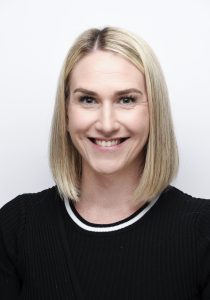


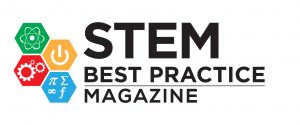

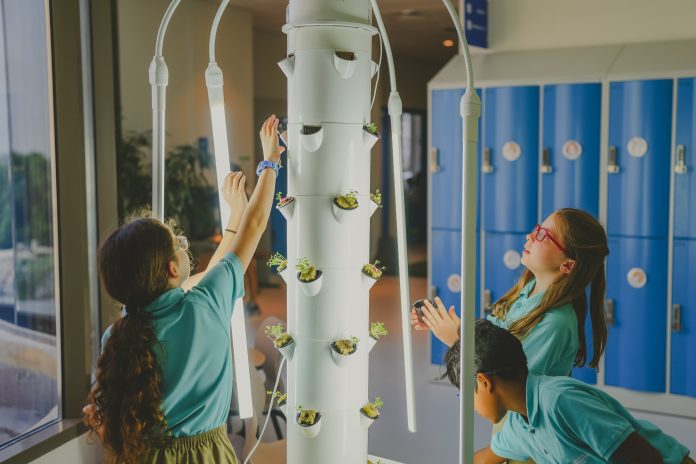
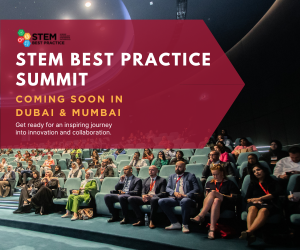
Good read